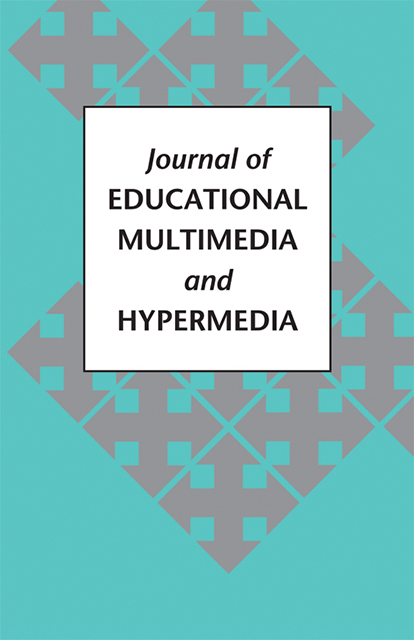
Improving Learning in Computer-based Instruction Through Questioning and Grouping Strategies
Article
Mary Niemczyk, Wilhelmina Savenye, Arizona State University, United States
Journal of Educational Multimedia and Hypermedia Volume 19, Number 1, ISSN 1055-8896 Publisher: Association for the Advancement of Computing in Education (AACE), Waynesville, NC USA
Abstract
This study investigated the comparative effects of adjunct questions, student self-generated questions, and note taking on learning from a multimedia database. High school students worked individually or in cooperative dyads on a computer-based multimedia unit using a study guide to answer either adjunct questions, generate self-questions, or take notes to accomplish a learning task. There were two criterion measures, a posttest and an attitude survey. Other data collected included informal observations, student interviews and review of the student study guides. The dependent variable was achievement as determined by posttest score. Analyses were conducted using both traditional Analysis of Variance (ANOVA) techniques as well as hierarchical linear modeling (HLM). Because of the dependency of scores of students working in pairs, it was determined that HLM techniques were more appropriate. Results of ANOVA analyses yielded significant differences, however, HLM analyses did not. The correlations of posttest scores of students working in pairs seemed to indicate possible levels of cooperation. Student interview responses and review of student study guides seemed to provide indications of how students utilized the questioning or note-taking strategies while working in this environment. Implications for the design of instruction are discussed.
Citation
Niemczyk, M. & Savenye, W. (2010). Improving Learning in Computer-based Instruction Through Questioning and Grouping Strategies. Journal of Educational Multimedia and Hypermedia, 19(1), 79-102. Waynesville, NC USA: Association for the Advancement of Computing in Education (AACE). Retrieved September 1, 2024 from https://www.learntechlib.org/primary/p/32372/.
© 2010 Association for the Advancement of Computing in Education (AACE)
Keywords
Cited By
View References & Citations Map-
Effects of questioning advance organizers on learning outcomes in a web-based learning object on research and academic skills
Christine Brunn, Fachhochschule Lübeck, Germany; Joshua Weidlich & Theo Bastiaens, FernUniversität in Hagen, Germany
EdMedia + Innovate Learning 2018 (Jun 25, 2018) pp. 1951–1960
These links are based on references which have been extracted automatically and may have some errors. If you see a mistake, please contact info@learntechlib.org.
